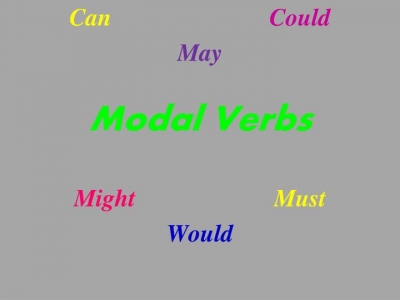
Modals are a special set of verbs. They act as helping verbs. They are used with main verbs to convey the full sense of a sentence. They express the mood of the speaker. They express possibility, intention, ability permission, requests, wishes, suggestions etc. Can, could, shall, should, will, would may, might, must need used to, ought, and dare are called modals.
Points to remember
- Could’ is more polite than ‘can.
- Would is more polite than will.
- We use ‘can’ and will with people we know.
- We use could and would with people who are older or who we do not know well.
Finite and non-finite verbs
Finite verbs:
Verbs can be finite or non-finite A finite verb in a sentence indicates the tense. It also has to agree with its subject in person and number. The form of the verb changes according to the tense. A finite verb forms an essential part of sentence and is closely connected to the subject of the sentence. A finite verb is limited by tense (past, present and future tense), number (singular or plural), and person (first person. second person, and third person).
Examples
- She goes to school every day. (Present tense)
- The girl sings well. (Singular)
- She speaks well. (Third person)
Non-finite verbs:
A sentence cannot make complete sense without a finite verb. A non-finite verb is not limited by tense, number, or person. It does not change its form. It cannot be the main verb in a sentence. It is usually an extension of a sentence and can be left out sometimes. Non-finite verbs are of three kinds: participles, gerunds, and infinitives.
A participle is a verb that ends in ing’ or est or ‘en’ and is used both as a verb and adjective.
- Example: He fell off a moving bus.
A gerund is a verb, which is also used as a noun.
- Example: Walking is the best form of exercise.
An infinitive consists of the words to + verb
- Example: The teacher asked us to write the answers.
Picture Credit : Google




